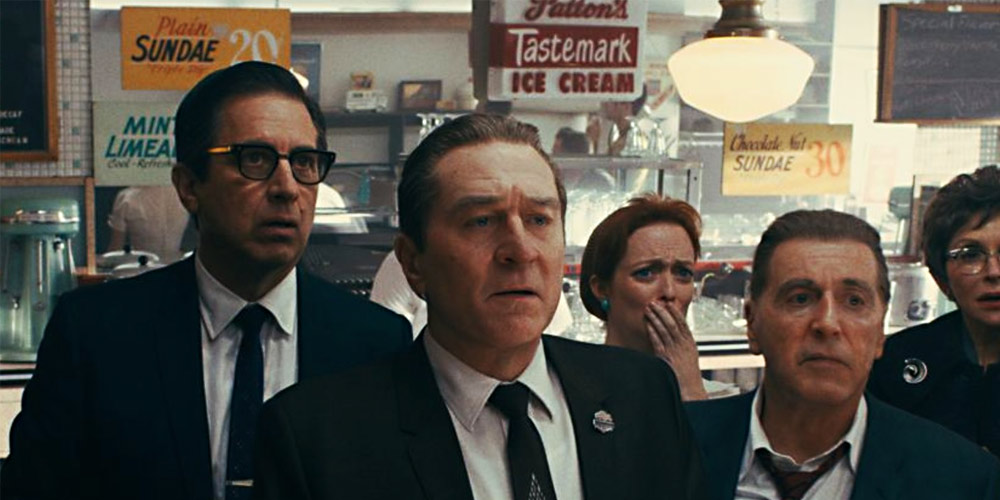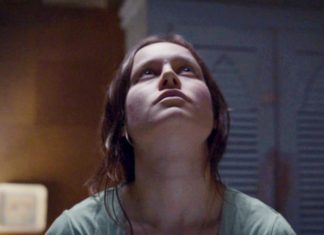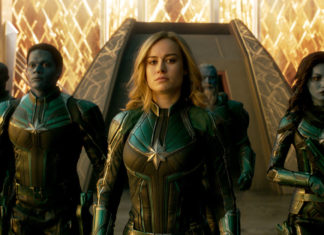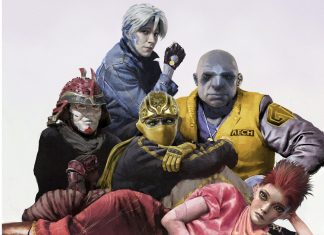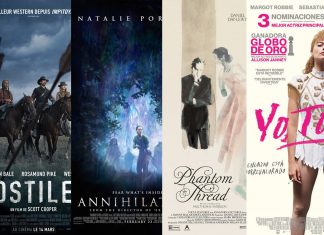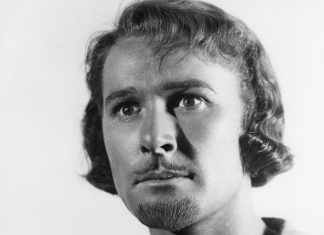I’m Telling You All, For the Last Time…
Watching The Irishman, the impression is that Scorsese is finally having the last word with himself about the Mafia, his long-standing Catholic guilt, and even the music of his era.
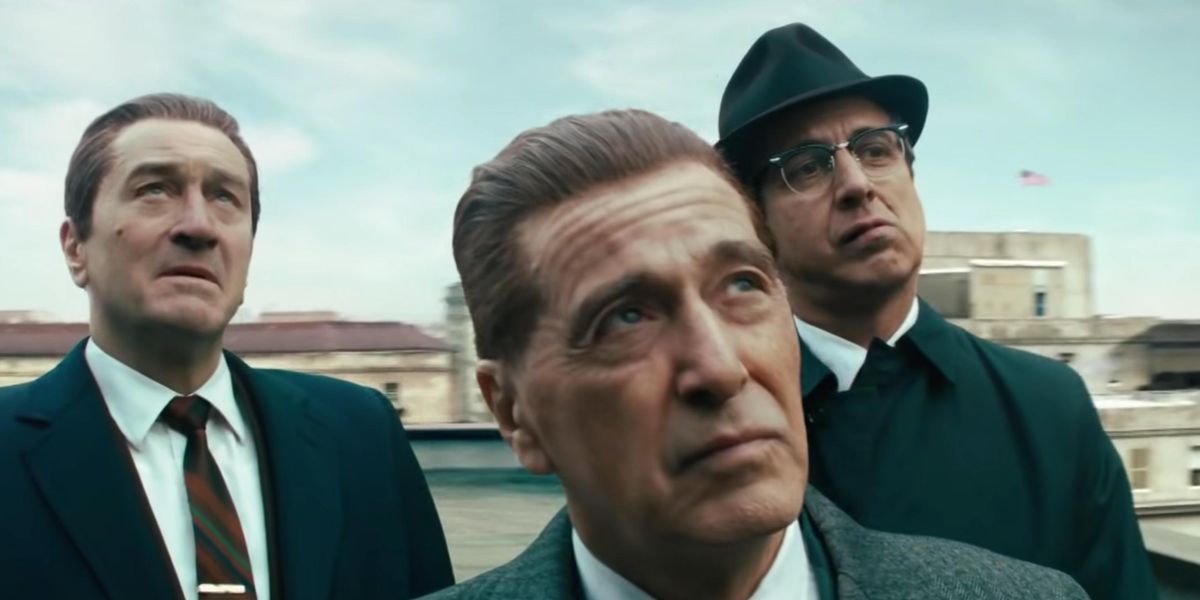
The Irishman—which does come in at 3 hours and 39 minutes long—is a beast for almost no reason at all.
Scorsese spends an inordinate amount of time introducing us to DeNiro’s character of the Irish hired killer, Frank Sheeran, but we never find out about his internal motives.
Yes, he killed people because it was the thing to do to get paid, but Scorsese, and writer Steve Zallian–never gives us more than an elementary level of insight into Sheeran’s motivations.
Joe Pesci’s portrayal of mob boss Russ Buffalino is great—and it’s great to see Pesci on-screen again—but the pace with which his motivations are introduced is glacial as well.
In spite of the slow pace, the lack of revealing character motivations, and even the nature of this being a “traditional” return to mob film form for Scorsese, The Irishman does have a couple of things going for it that will make it worth your while.
No Matter the Tech, DeNiro, and Pacino are Still Old
There is a moment in The Irishman where DeNiro must act like a 45-year-old and put a beat down on a local grocer, and you can tell that he’s old.
Really old.
Like creakily old.
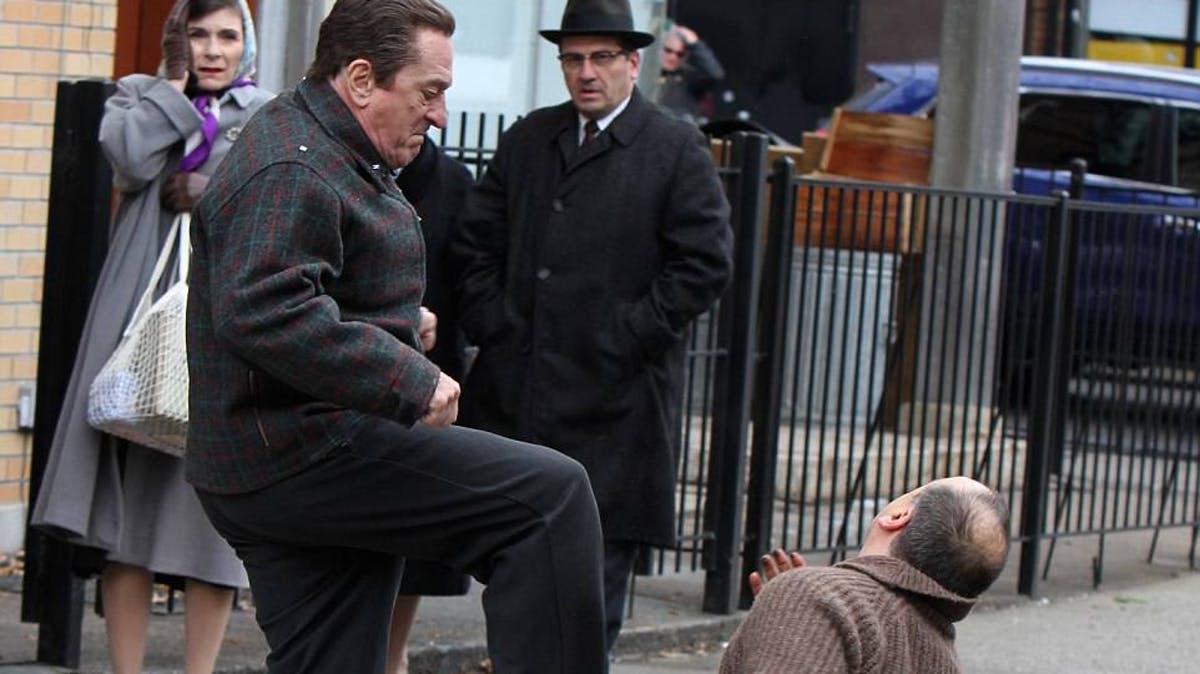
Despite the “de-aging” technology that Netflix paid for, DeNiro, Pacino, and Pesci, are still old men. And that’s a turn of grandeur rather than one of “schticky”-ness or nonsense for the plot of The Irishman.
We don’t have too much available in popular culture either for old men, or about old men, and we particularly don’t have anything in popular culture entertainment featuring the reality of regret in old men’s lives.
Old men—of all races—die first.
Go to any elderly or senior care living center and all you will see are old women.
When we open on Sheeran, he’s old already and dying in a nursing home in a wheelchair, and as we go through the film, on step at a time, we see the unwinding of old men and how much regret they all carry about their decisions, their families, and their lives.
So, Werner Herzog cries at the Baby Yoda. Michael Douglas and Alan Arkin are tearing it up—slowly—in The Kominsky Method on Netflix. And the vast majority of old men still will wind up dying alone, in a room, full of regret.
The Irishman demonstrates all of this beautifully.
Anna Paquin Doesn’t Bring Moral Clarity
Anna Paquin as Peggy Sheeran—Frank’s disillusioned and estranged daughter—is supposed to be the moral center of The Irishman.
She’s supposed to stand in for the audience to show their moral surprise and disgust with what Sheeran and his pals engage in—from casual bribery to endless deaths that are hinted at through epitaph-like pauses below characters heads in the film–but she never says anything.

We’re led to believe that she fears Pesci’s character Buffalino as a child because she doesn’t like “nicknames.”
We’re led to believe that she loves Pacino’s Hoffa character as a child because he lacks a “nickname” and brings her ice cream.
But this is a thin ground to stand on in a film if your character is supposed to act as the moral center. She should speak, instead, all we get are horrified, round eyes, every time DeNiro’s Sheeran acts in a way that outrages her ten-year-old moral conscience.
This continues Scorsese’s backhanded critique of Middle-America that he’s been engaging in ever since Ray Liotta smirked at the camera at the end of Goodfellas while picking his paper up off the porch: Scorsese—and Hollywood’s—problem with the “silent majority” in America between 1950 and 1980 as everything was going off the rails culturally in America was that they were too silent and preferred voting rather than speaking.
And, for people–and an industry–driven by making products focused around talking, this is a problem. They can’t deal with the judgmental silence.
Pacino “Out Acts” DeNiro in Every Scene He’s In
Pacino—whose accent threw me off in the Hunters trailer—brings his “A” game to The Irishman in the form of answering the question that even Jack Nicholson didn’t in Hoffa:
Why was Hoffa who he was?
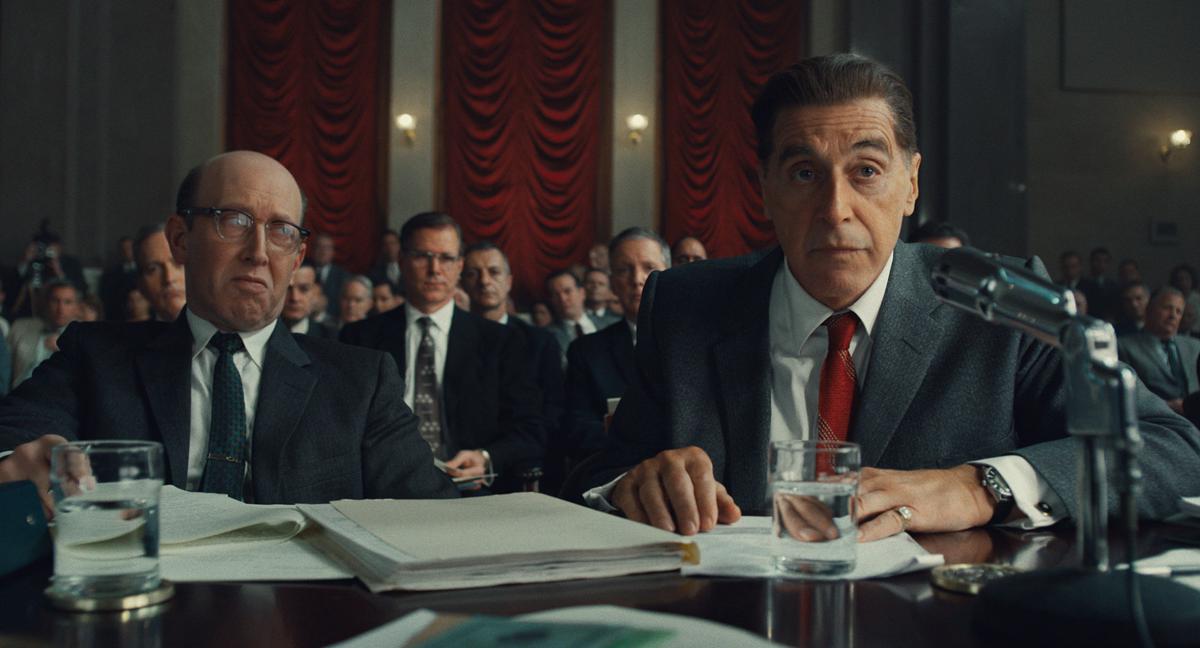
Pacino has been overacting and merely being the character “Pacino” since arguably Scent of a Woman—I trace it back to Godfather III, others say Scarface, but I digress—and I have wondered if Pacino was never that good in the first place, or if he’s just totally lost his acting mojo.
The Irishman allows Pacino to put away the “Pacino” character he’s been carrying for damn near thirty years now and he allows Hoffa to come out.
The added benefit is that he makes DeNiro look like the one-note chump he always was, by providing Hoffa with motivations—“you never trust a millionaires’ kids’” talking about the Kennedys—and showing how he wasn’t going to be intimidated by anyone, not even his paymasters in the Mafia.
The Irishman, on balance, closes out Scorsese’s conversation that he’s been having since Mean Streets with the American film-watching public about the nature of the Mob and how that nature has wound its way through the American body politic since the 1950s.
We’ll never have another director as good at handling this material as Scorsese.
Go see The Irishman on Netflix tonight.

